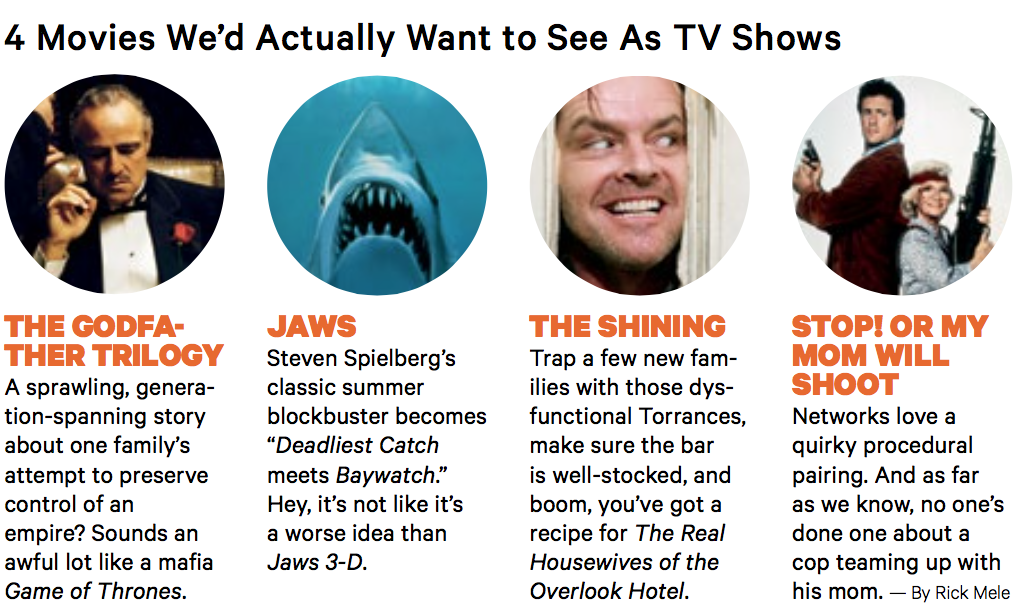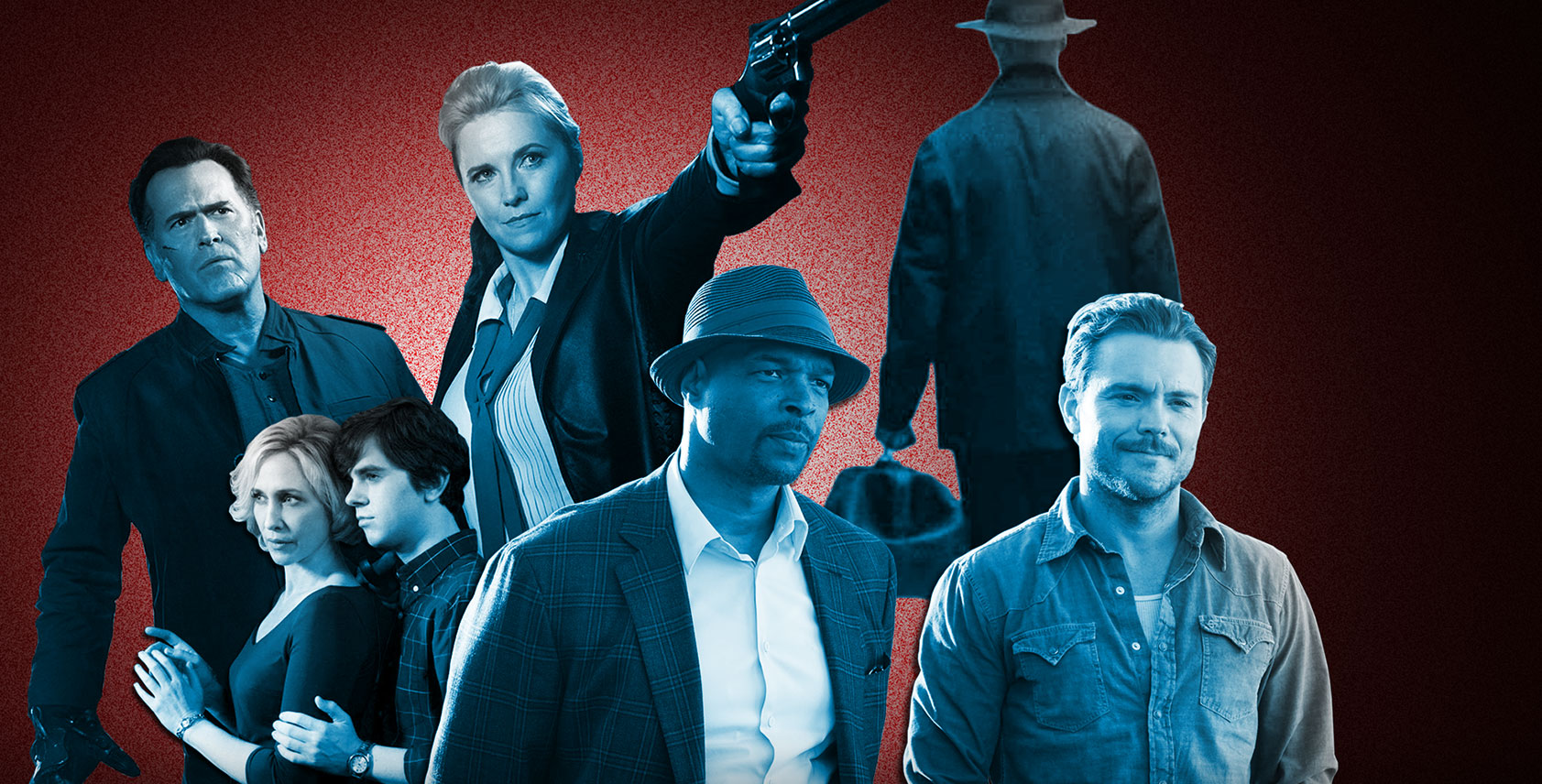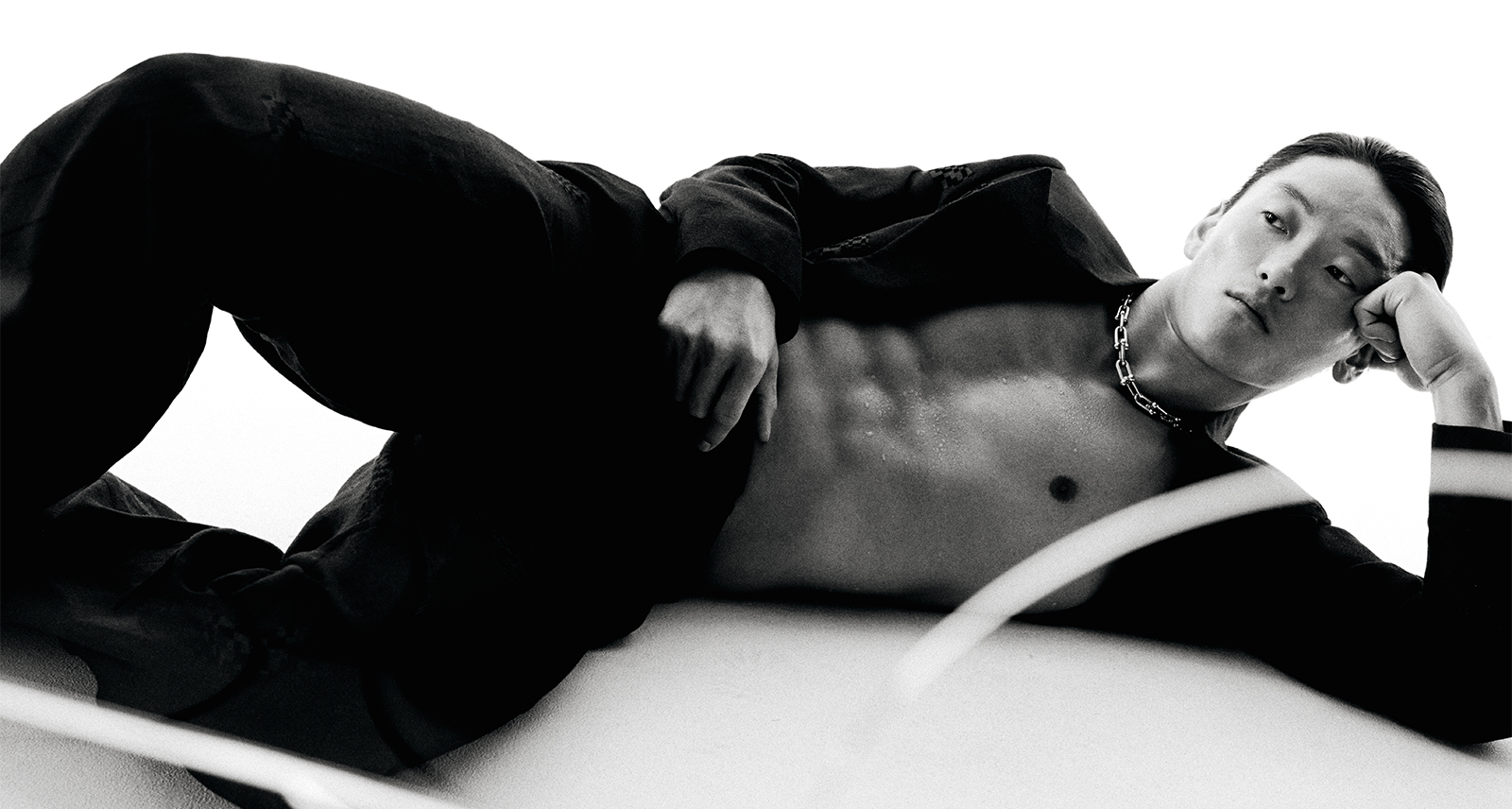Hollywood’s Remake Syndrome Is Coming to TV and It Ain’t Pretty, People
TV is the new film. This is not news. It’s an idea that’s been bandied about since at least The Sopranos: as movie studios have gravitated toward bigger, dumber, more cape-laden blockbusters, television has become a haven for smart, character-driven storytelling. Only now, it seems like TV is becoming the old films. Or maybe it’s better to say that the other way around.
This fall, at least three new shows based on beloved movies are premiering — Lethal Weapon, The Exorcist, and Training Day. They’ll join a TV landscape already crowded with small-screen renditions of cinematic favourites. There are critically acclaimed anthologies (Fargo), single-season clunkers (Rush Hour), and a growing middle class of sequels, prequels, remakes, and spinoffs: Bates Motel, Limitless, Scream, 12 Monkeys. Plenty more, including adaptations of The Truman Show and Hitch, are in various stages of production. What gives?
The movie-to-TV model has worked in the past, of course: Jason Katims’ back-to-back tear-jerking hits Friday Night Lights and Parenthood are proof enough of that. But those shows borrowed little more than the titles and kernels of plot from their source material before running in new directions. Fargo aside, the majority of this current crop of adaptations hews too closely to the originals. The trailer for Lethal Weapon feels like a shot-for-shot remake of the first flick, stuffed with plenty of car-jumping action and Riggs showing up for an awkward dinner at Murtaugh’s house. Does anyone actually want to watch their favourite movies watered down over 22 episodes?
It’s more than a little disheartening to see TV trending towards the same narrow-minded values of the movies, where audience familiarity and intellectual property rights reign supreme. Sure, the entertainment industry cannibalizing itself isn’t exactly a new phenomenon — in some ways, this is an odd mirroring of the ’90s and early ’00s, when every third movie was a pithy remake of a TV show, from The Brady Bunch to Charlie’s Angels. But it’s still worrisome that, just a year removed from the end of Mad Men and TV’s supposed Golden Age, network execs are already running scared into their Blu-ray collections for salvation. Nostalgia can be a cozy blanket, after all.
Maybe, though, there’s a better way. In July, Netflix premiered the series Stranger Things to much fanfare. The show was billed as an original, but that was something of a misnomer — the characters, settings, and situations were all clever homages to an entire era of moviemaking. From the E.T.-esque gang of bike-riding kids at its core to the Alien-aping faceless monster they encounter, it’s a loving pastiche of ’70s and ’80s VHS favourites. Cinephiles reveled in the nostalgia porn, but grasping all those references was hardly integral to the enjoyment of the show — for the preteens watching it alone in their rooms after midnight, this was their E.T. Stranger Things took what we loved and turned it into something fresh and worthwhile.
That’s a lesson more networks could learn. There’s nothing wrong with familiarity. It’s unoriginality that’s a problem. We’ll always have time for a good buddy cop romp, sure, but we don’t need to see the misadventures of a newly recast Riggs and Murtaugh. Steal from the movies, if you have to. Just take the time to reinvent, not rehash.

Get the best of Sharp Magazine every day by subscribing to the Sharp Insider newsletter.










